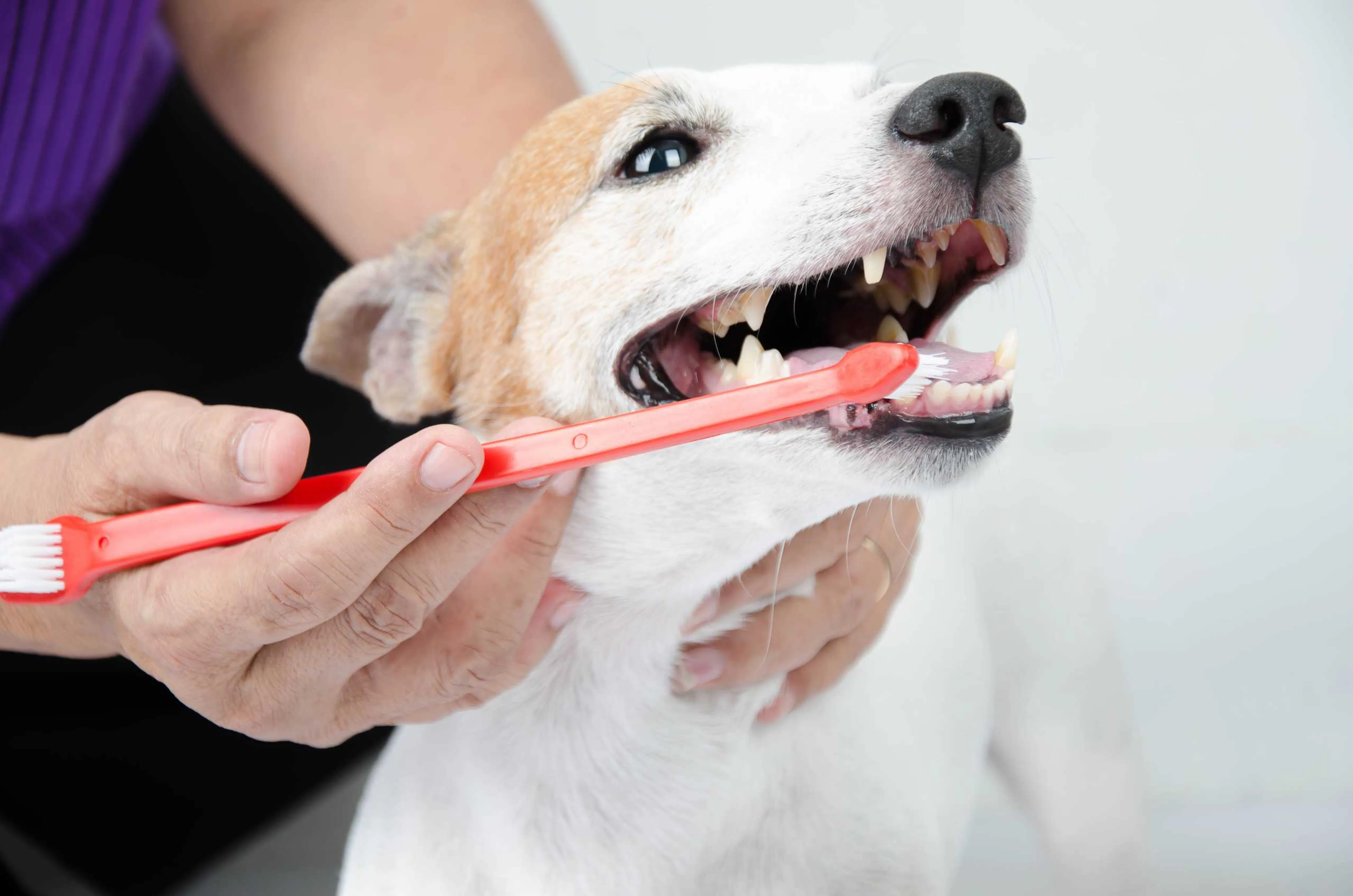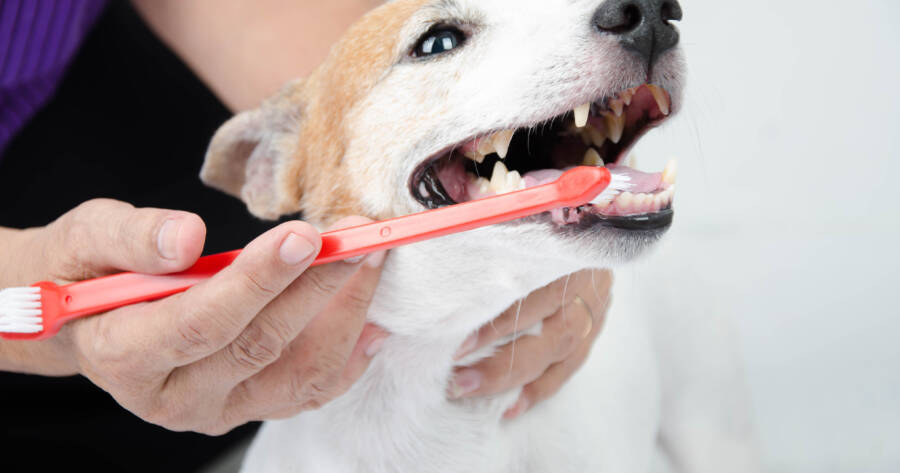Taking care of your furry best friend requires regular vet visits, frequent grooming, and a lot of love and attention. But there’s one aspect of your dog’s health that you likely aren’t thinking about. And ignoring it could result in dangerous health issues like bad breath, inflamed or bleeding gums, and bacterial infections.
It’s your dog’s teeth. While most pup parents don’t think about their dog’s oral health unless they’re at the vet, your dog’s teeth are important. And they need to be cleaned.
Forgetting to clean your dog’s teeth can lead to a host of oral health problems, and it could even cause your dog to need veterinary dental surgery. If you’re hoping to avoid these issues, you need to brush your pup’s teeth regularly – just like your own teeth.
What Should I Use to Clean My Dog’s Teeth?
You should care for and clean your dog’s teeth just like you do when you brush your own teeth. You’ll need to use a toothbrush with soft bristles.
It’s a smart idea to use a dog toothbrush, as these special toothbrushes are designed for dogs’ mouths. However, you can also use a child’s toothbrush or even a cotton swab.
Do I Need to Use Special Toothpaste for My Dog?
You should always brush your dog’s teeth with a specially formulated pet toothpaste. These toothpastes are typically flavored to appeal to pets – they can taste like poultry, malt, or other familiar flavors for dogs.
And you should make sure you never use human toothpaste when brushing your dog’s teeth. Human toothpaste contains ingredients like baking soda that can be harmful for your dog if swallowed.
How Often Should I Brush My Dog’s Teeth?
Your dog’s teeth are just like your own – and that means they should be brushed as often as possible. Ideally, Banfield recommends brushing your pup’s teeth every day.
However, if you can’t brush your dog’s teeth daily, there are other options. You can help care for your dog’s teeth by using pet dental care products, like special chew toys or treats, and dietary changes to offer oral care benefits. You can also talk with your veterinarian about an oral care routine that will be best for your dog’s needs.
Tips for Brushing Your Dog’s Teeth at Home
Brushing your dog’s teeth can be a tricky task. But, with regular brushing and the right tips, it can be easy and comfortable for both you and your pet.
Follow these recommended tips to get the job done:
- Introduce your dog to toothpaste by letting him take a small taste before you start brushing
- Lift your dog’s lip up – or down – in order to get to both the teeth and gums
- Brush in gentle circles
- Only brush the outside of the teeth – most dogs will not be comfortable with brushing inside (the back side) of their teeth
- Make sure to brush as far back as you can to reach all teeth
- Reward your dog once brushing is done to make the experience a positive one
With regular brushing and positive reinforcement, your dog will get used to the process. And this will make it easier to regularly clean your pet’s teeth.
How Often Should I Have My Dog’s Teeth Professionally Cleaned?
With regular care and brushing, your dog’s teeth should be as healthy as can be. However, even with a regular brushing routine in place, you still need professional checkups and care – just like you visit the dentist for regular professional cleanings.
Even with a consistent at-home brushing routine, you should take your dog in for a professional teeth cleaning at least once each year. During a professional cleaning, your vet will assess your dog’s overall oral health, remove tartar buildup, and check for conditions like gingivitis or gum disease. And this can prevent further health complications.
Of course, many people fall behind on their dogs’ dental care. And it’s easy to overlook regular teeth brushing for your pets. Life happens – and that’s why professional cleaning exists. If your dog is need of a good cleaning, you can get the job done with ease.
Look into professional dog teeth cleanings in your area. You can see where these services are available, and you can also look into pricing. The longer you wait to get your dog’s teeth cleaned, the more disastrous it can be for your furry friend’s long-term health.
 Littlekidmoment / Shutterstock
Littlekidmoment / Shutterstock


